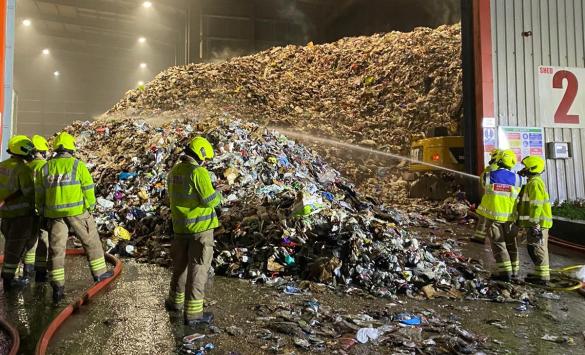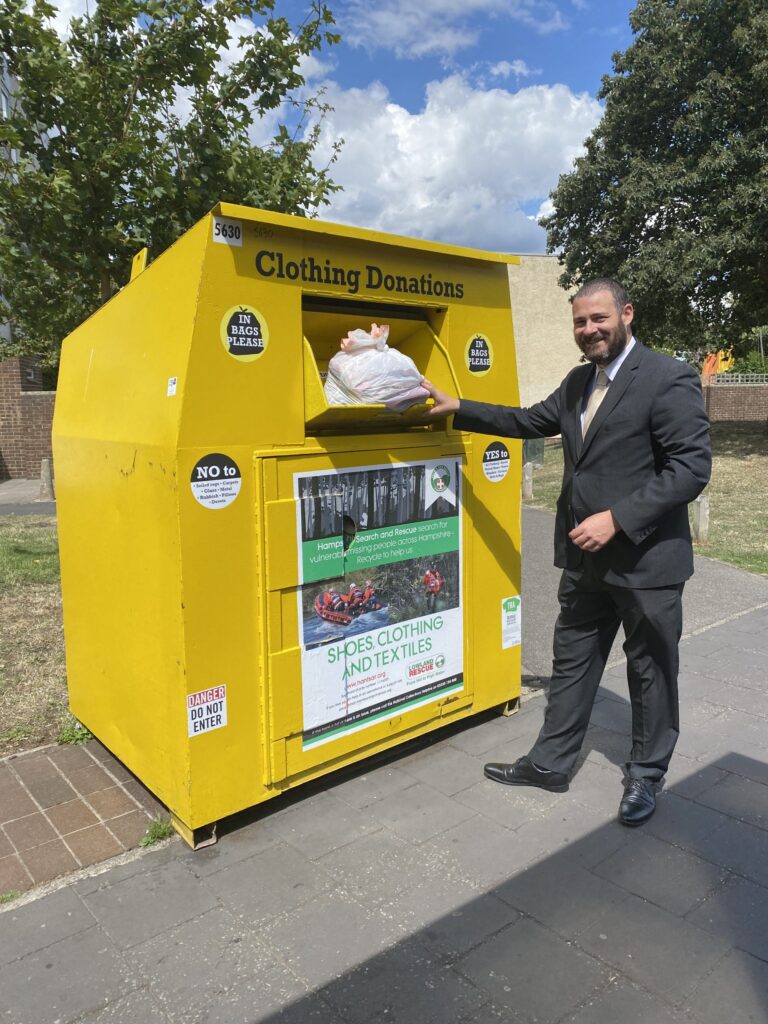As a result, MRF operators across the country, including Greenstar and Viridor, are being forced to recoup costs by raising gate fees and many are also storing some materials, most notably steel cans.
With Christmas set to put more downward pressure on prices, due to a glut of materials and extended shut-downs at reprocessing sites, there is now a general consensus that the market will not start to recover until after Chinese New Year at the earliest – with some forecasting that it may not pick up until as late as 2011.
Commenting on the overall situation, Richard Cutts, director of Community Waste, which runs a MRF in Milton Keynes, said: “The recycling markets are not fun right now. Local authorities need to understand that this is not a short term problem.”
John Viviani, managing director of Viridor Resource Management, said: “The markets have stabilised over the last three weeks and there are some green shoots of recovery in prices for plastics and some metals but it is still early days yet.
“If anyone thinks that the prices will jump back up in two months they are kidding themselves. This is not a fundamental flaw in the recycling industry- every industry is suffering from the financial crisis,” he added.
Paper
And, importantly, merchants report that material is still moving, an approach advocated by the Independent Waste Paper Processors Association.
In terms of prices, the past few weeks have seen some sharp falls in the value of used newspapers and mid-grade (office and printer material) along with a steadying of the export price for old-KLS (used cardboard).
Export demand is said to have returned at lower levels for cardboard with the price rising to as much as £30 a tonne, on the back of a rise in the value of the paper PRN which is currently worth between £5 and £10.
In contrast the price paid for used newspapers has plummeted, with UK mills said to be well-stocked. In the face of weaker demand for newsprint from newspaper publishers – pagination of newspapers is down year-on-year even with Christmas advertising – mills are under no pressure to rush into the market to secure material. Demand is also down because of reduced property sections in some papers.
It is not just the UK price for used newspapers which has fallen – the export price has also reduced below that paid in the UK. Questions remain about how the market will develop in 2009 when Palm Paper's mill will come on stream in Norfolk and, perhaps because of this, at least one UK mill is understood to have agreed long-term local authority contracts at about £70 a tonne.
Looking ahead, merchants expect the situation not to get any better among all grades. Mid-grade prices have fallen and there is said to be little prospect of these rising again for several months, especially as the supermarkets are keen to squeeze down the price of their tissue products (usually made from mid-grade material).
In terms of cardboard in the UK, the domestic mills are expected to take significant downtime this Christmas, much as they did in the past – although in 2007 the mills took less downtime because of the strong economy.
Mixed paper from materials recycling facilities (MRFs) remains a challenge for the waste management industry which is still moving it but at low prices. In a number of cases extra efforts are being made to ensure the quality of the material is improved, with some talk of extra sorting. Sending material to landfill is not seen as an option, partly because of the high cost of doing this.
Steel
Although demand for non-packaging steel meanwhile is reported to have picked up slightly on the export market, prices being paid are believed to vary wildly. Within non-packaging steel, the highest values can be found in Grade 4a Residual Bales – thin steel sheets that have been baled – and cast iron, both of which are selling at above £80 per tonne, while mixed steel turnings from sources such as the chemical industry have some of the lowest values, at around £25 per tonne.
Aluminium
However, national manager Andy Doran said that the company's reprocessing facilities were being closed down from today (December 10) until January 12 – which he said was a longer period than usual – due to the economic climate.
He said: “The aluminium market is reacting to the current economic situation like most other markets”.
Plastics
However, the market was still described as “dire” by many, especially for lower grade plastic film, and even prices for grades such as HDPE natural appear to have slipped by around £30 a tonne with the low price of oil and virgin polymer keeping prices low.
One collector told letsrecycle.com: “The lower quality film you can't move and all storage does is pro-long the problem.”
Longer term
Looking to the longer term, all eyes are now turned to America and in particular the inauguration of Barack Obama as a possible catalyst to restore confidence in the US market, and in turn kick-start the Chinese and world economy.
However, there is a general consensus that there will be no easy solution to ease the current situation and there are fears that the New Year could also bring fresh problems. For instance, with China exporting fewer goods, there are likely to be fewer containers being sent back empty in which to send recyclable materials.
Mr Viviani said: “The feel good factor is required. The new president could breed optimism in the markets and, combined with good fiscal support measures, it may be enough. We have to look to next year to something positive but it will be a long protracted affair as the Bank of England and IMF are suggesting.”















Subscribe for free